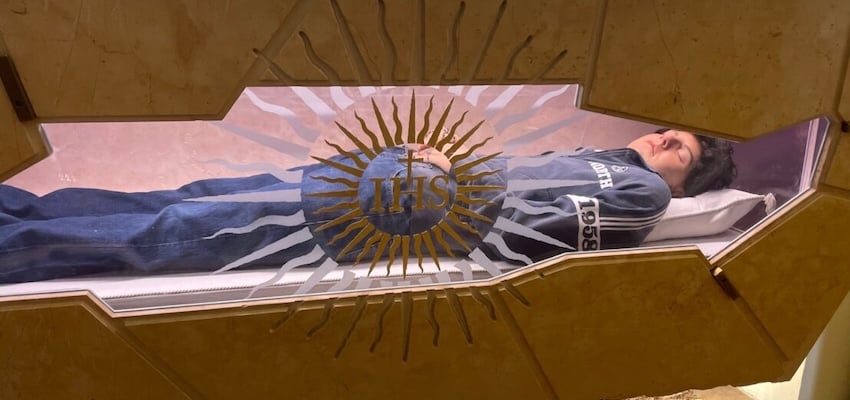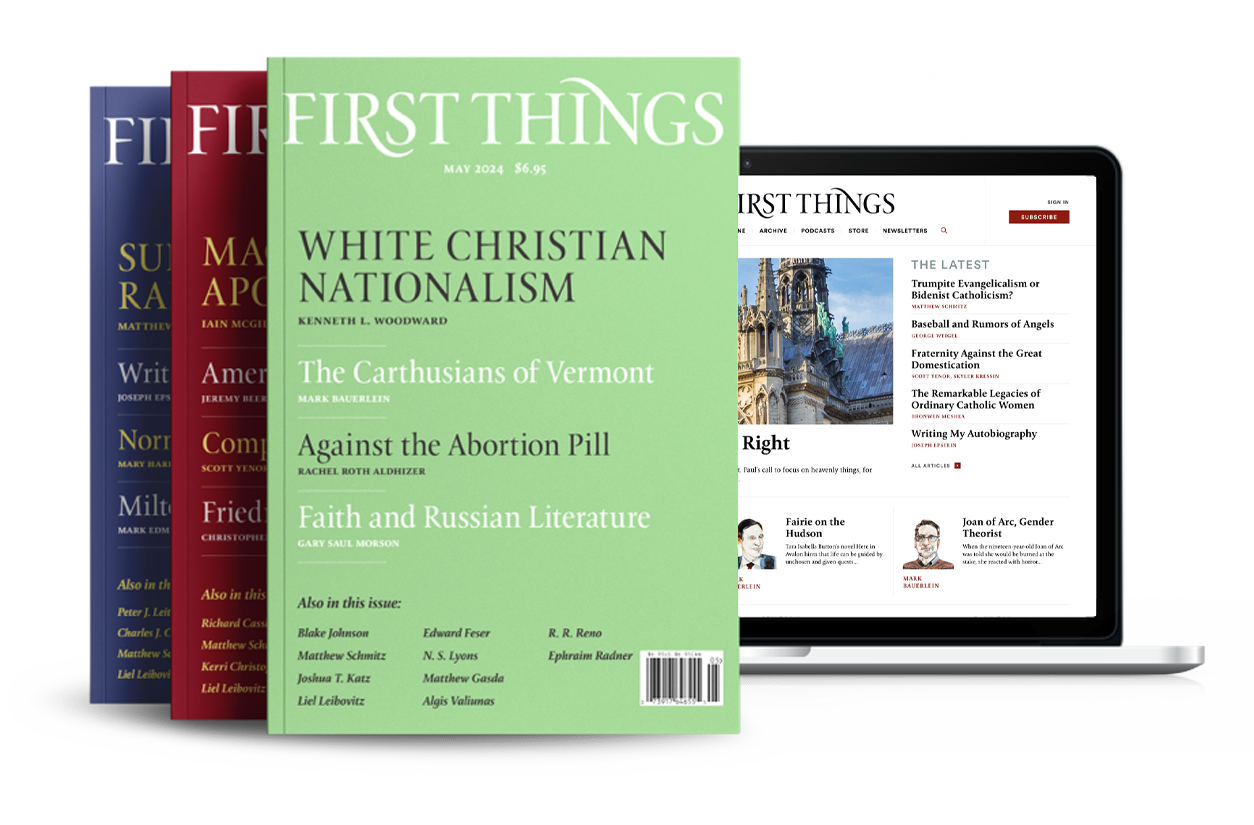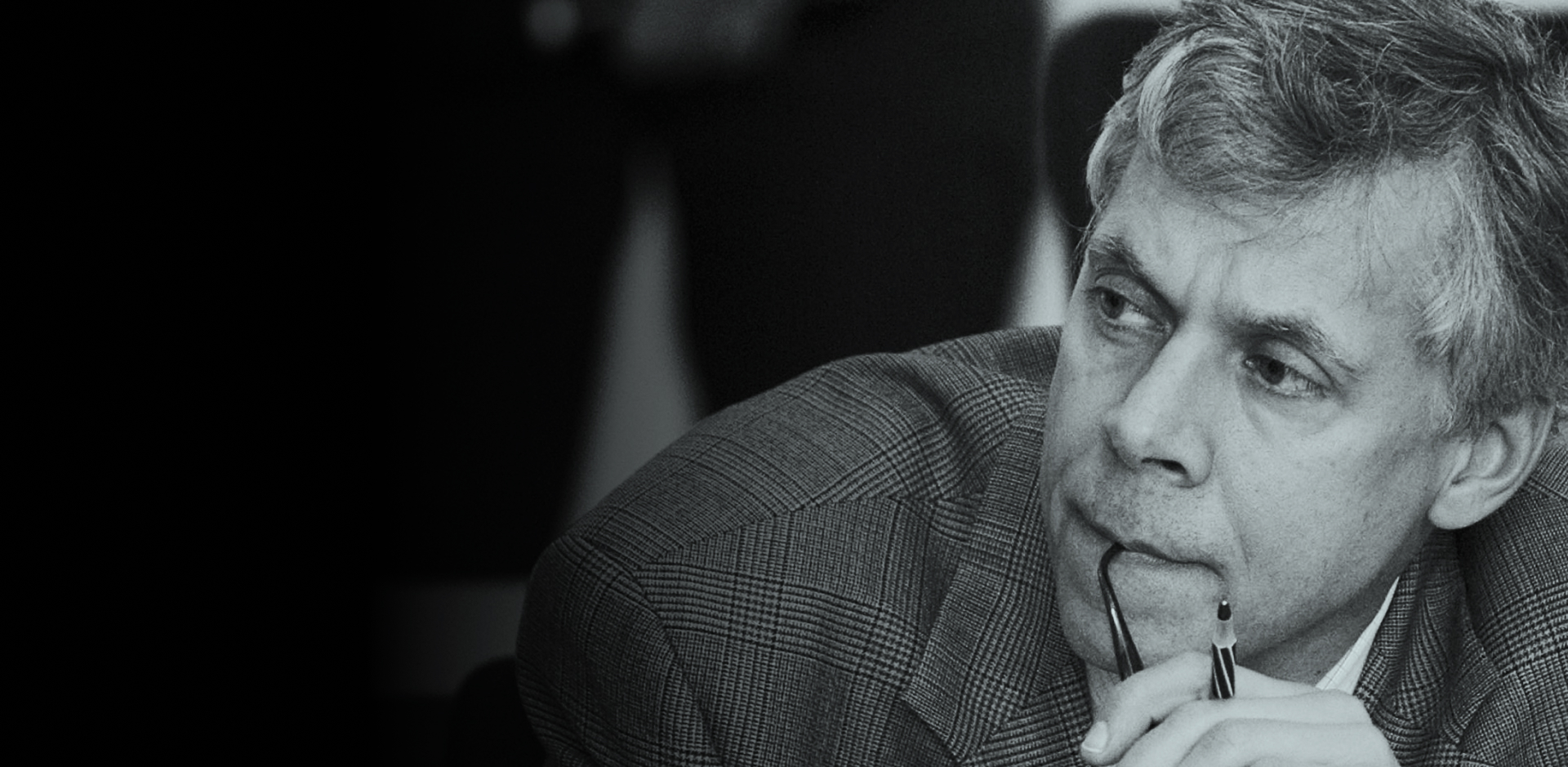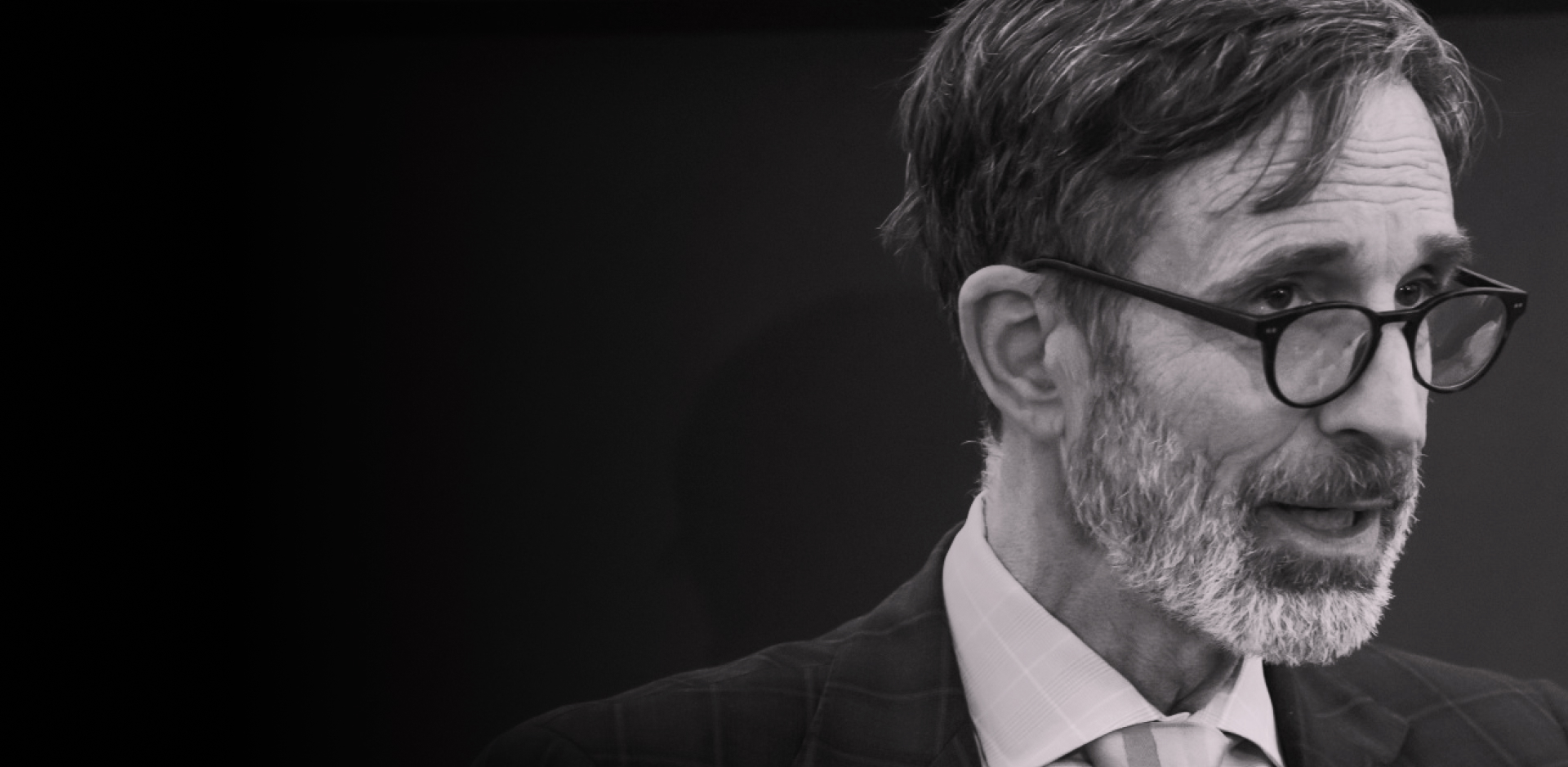
Carlo Acutis’s Simple Faith
I write these words on pilgrimage in the beautiful Italian town of Assisi, home to Sts. Francis, Clare, and now, since September 7, Carlo Acutis. The images of Francis…
October 2025
Print Edition


October 2025 Print Edition

America’s Most Influential Journal of Religion and Public Life
Paul’s Ethnic Gospel
The Substance of Our Lives
While I was in college, the local priest got me to come along with him on his…
War on the Weak and a Bad Bishop
A case study in brain-dead deconsolidation: marijuana legalization. Marijuana has been legal in New York State since…
The Right to Be Killed
In the days surrounding the assassination of Martin Luther King Jr., leaders of the civil rights movement…
No Chosen, No “Almost Chosen”
Mazal tov! Partisans on the left and on the right, fighting bitterly for a larger swath of…

The First Things Podcast
Turning Point

Conversations
The Question of Suicide

The Editor’s Desk
Faith in State Politics (ft. Cameron Sexton)
A Turning Point for America
A Time for Hatred?
For two weeks, two icons of horrific violence have dominated the news: the August 22 murder of…
Carlo Acutis’s Simple Faith
I write these words on pilgrimage in the beautiful Italian town of Assisi, home to Sts. Francis,…
Marcuse, Critical Theory, and the Death of Charlie Kirk
Over the last few years, I have spent a good bit of time reading the early critical…
Charlie Kirk’s Impact on Young America
I met Charlie Kirk once at a Turning Point event I helped organize, which brought him and…
B. F. Skinner Is Back
In the summer of 1942, Arthur D. Hyde, vice president in charge of research at General Mills,…
Finding Private Roy
By the late 1970s, when I attended public high school in rural, blue-collar Central New York, more…
Toward a New Humanism
The most pressing question we face today is that of the Psalmist: “What is man?” So urgent…
Bright Girdle Furled
Light on Darkness restores liturgy to its place at the heart of the medieval world. Like a…
Hegel-Sized
A sense of an ending is in the air, but there’s little consensus about what’s ending or…
Politics for Losers
In a 2002 essay, Christopher Caldwell—perhaps the premier conservative journalist intellectual writing today—paid a memorable compliment to…
Madonna and Child
First Place — 2025 First Things Poetry Prize
Not Versed in Country Things
Second Place — 2025 First Things Poetry Prize
For the Finders of Bodies in Murder Mysteries
Pray for her now, the cleaner arriving at dawn, unlocking, humming idly as she dusts till a…
Empathy is Not Charity
Martin Scorsese’s recent film Silence, like the historical novel by Shūsaku Endō on which it is based,…
The Sacred Heart of Victor Hugo
The Temptation of the Impossible: Victor Hugo and Les Misérables By Mario Vargas Llosa Princeton University Press,…
The Whole World Groans
St. Jerome, angry over the protracted Arian crisis and the apparent victory of the “semi-Arians” at the…
Christianity and Poetry
I When I became a man, I put away childish things. —St. Paul, 1 Corinthians 13 Most…
My Madness
My brother Peter was a wondrous boy, the youngest, brightest, and bounciest of three kids: IQ 165,…
Shakespeare, Four Centuries On
This Saturday, April 23rd, marks an important anniversary: four hundred years since the death of William Shakespeare.…



